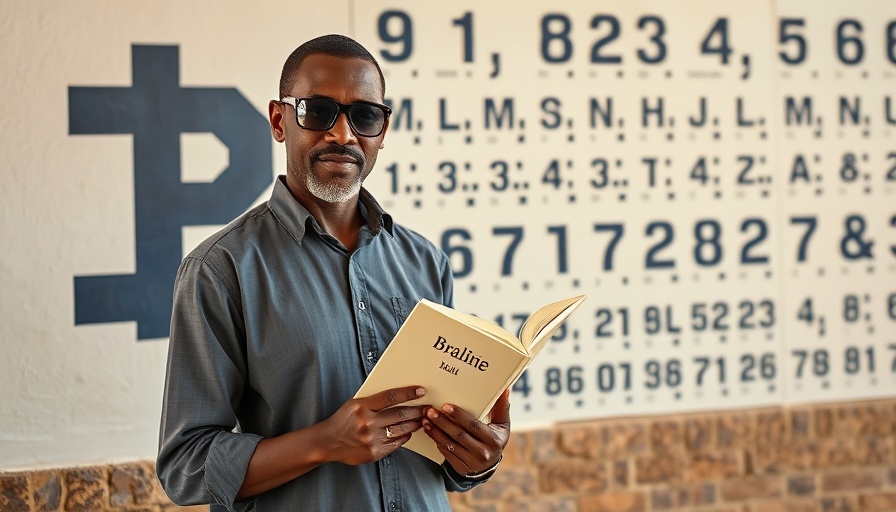
The Legacy of Braille in Mali: A Two-Hundred-Year Journey
In the heart of Mali, the impact of Braille—a tactile writing system conceived two centuries ago—echoes through the lives of countless individuals who are blind or visually impaired. This revolutionary system has opened doors for literacy, self-sufficiency, and empowerment among the blind community. Yet, the challenges surrounding their societal inclusion persist, as the nation grapple with numerous hurdles common across West Africa.
In 'Mali: Two hundred years of empowering the blind community through braille,' the discussion dives into the profound impact of this writing system on education and social integration, exploring key insights that sparked deeper analysis on our end.
The Transformative Power of Braille
For many, Braille represents more than just a writing system; it symbolizes hope and opportunity. As one individual shared about their experiences at the IGA University, the ability to communicate through writing has fundamentally altered the perception of what blind people can achieve. "Before, people would question my ability to succeed," they expressed. "But then I discovered that I could thrive just like anyone else. My ambitions no longer felt limited by my visual impairment."
Technology: A Complement to Tradition
While modern advancements like voice synthesis and audio features are making classroom environments more accessible, advocates argue these technologies should augment, rather than replace, Braille. "Technology enriches the experience but cannot substitute for the foundational system that Braille provides," noted a local educator. This perspective underscores the significance of integrating both ancient and contemporary methods to ensure that all individuals—regardless of ability—have equitable access to education.
The Current Landscape: The Numbers Behind the Narrative
According to the I Care charity, approximately 170,000 people in Mali are visually impaired. This significant statistic emphasizes the urgency for systemic changes that prioritize accessibility and inclusion within the government and educational frameworks. The efforts to champion the needs of the blind community must be accompanied by robust policies that create sustainable pathways for economic and social development.
Challenges and Opportunities in the Fight for Inclusion
Despite the progress made over two centuries, societal integration for blind people in Mali remains fraught with challenges, including economic barriers and stigmatization. Navigating life without the fundamental support structures can stymie the potential of many. However, the resilience within the blind community and the advocacy for fair policies are forging a robust counter-narrative that demands attention from local and national leaders alike.
Looking Forward: Insights for the Future
As we contemplate the future of Braille and its role in Mali, it is inevitable to muse on the shift toward more inclusive approaches, particularly in the realms of education and employment. With the advancement of digital technologies, there is a profound opportunity to create novel solutions that stimulate economic participation for individuals with disabilities. Insights gleaned from global best practices can inform local strategies and bolster community-led initiatives, resulting in a more equitable society.
Connecting the Dots: The Need for Advocacy and Awareness
The story of Braille in Mali is not solely a narrative about a writing system; it encapsulates broader themes of empowerment, resilience, and change. Advocacy plays an instrumental role in raising awareness and mobilizing support for policies that enhance the lives of people with disabilities. It becomes paramount for leaders and citizens alike to champion inclusive practices in every sector—be it education, business, or governance—ensuring that the blind community is revered as integral members of society.
 Add Row
Add Row  Add
Add 




Write A Comment